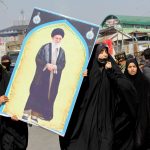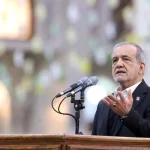
The Taliban said on Tuesday that they will temporarily adopt a 1964 constitution that granted women the right to vote, but will eliminate any elements they disagree with. In a statement, the Taliban’s acting Justice Minister, Mawlavi Abdul Hakim Sharaee, said the group plan’s to introduce a constitution that was used during Afghanistan’s short-lived golden age of democracy, although briefly and with amendments; anything in the text found to conflict with Sharia law and the principles of the Islamic Emirate will be discarded.
“The Islamic Emirate will adopt the constitution of the former King Mohammad Zahir Shah’s time for a temporary period…” Mawlavi Abdul Hakim Sharaee said.

Nearly six decades ago, before the world’s superpowers intervened in the country, Afghanistan enjoyed a brief period of constitutional monarchy during the reign of King Mohammad Zahir Shah. The king ratified the constitution a year after coming to power in 1963, ushering in nearly a decade of parliamentary democracy before he was overthrown in 1973.
The 1964 constitution, which gave women the right to vote for the first time and opened the doors for their increased participation in politics, would later appear to clash with the Taliban’s hardline views. The group, which swept to power in mid-August, also recently vowed a lenient and more inclusive approach than during their ruthless 1996 to 2001 rule, when women were largely excluded from public life, including work and education. Their vows were however questioned later, after they presented their caretaker government earlier this month, when all the top positions went to hardliners, with no women included.

After the Soviet occupation in the 1980s that was followed by civil war and then strict Taliban rule, Afghanistan once again adopted a constitution in the aftermath of the US-led 2001 invasion. However it opted not to restore the old monarchy, approving instead a fresh text in 2004 that envisaged a presidency and enshrined equal rights for women.






